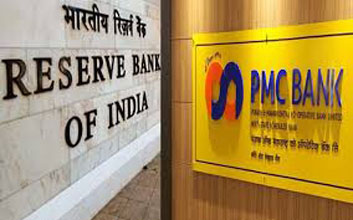NEW DELHI, SEPT 16
Finance Minister Nirmala Sitharaman on Wednesday said amendments to the banking regulation law seeking to extend the supervision of RBI to cooperative banks are aimed at improving their governance and protecting depositors’ money.

Moving the Banking Regulation (Amendment) Bill, 2020 in the Lok Sabha, Sitharaman said the government was compelled to come out with an ordinance during the lockdown period as the condition of the cooperative banks was “grave”.
Gross non-performing assets (NPAs) of cooperative banks increased from 7.27 percent in March 2019, to over 10 percent by March 2020, she said, adding as many as 277 urban cooperative banks have reported losses in the 2018-19 fiscal.
She further said that over 100 urban cooperative banks were unable to meet the minimum regulatory capital requirement and 47 had negative net worth at the end of March 2019.
In June, the Union Cabinet had approved an ordinance to bring cooperative banks under the supervision of the Reserve Bank of India (RBI). It also extended the provisions applicable to commercial banks to cooperative banks.
Responding to Congress’ opposition to the ordinance route taken by the Centre to amend the banking regulation law, Sitharaman said the ordinance was brought in only because of the financial health of many cooperative societies which were also performing the role of banks was becoming “very delicate”.
“Due to the pandemic, the stress in cooperative banks increased and the gross NPA ratio increased from 7.27 percent in March 2019 to over 10 percent in March 2020. Therefore it was felt that to protect depositors’ interest we should have the ordinance brought in,” she said.
Section 45 of the Banking Regulation Act is being amended to enable the making of a scheme of reconstruction or amalgamation of a banking company for protecting the interest of the public, depositors, and the banking system and for securing its proper management, even without making an order of moratorium, so as to avoid disruption of the financial system.
Besides, amendments in sections 3 and 56 extend the provisions applicable to scheduled commercial banks to cooperative banks and bring them within the RBI regulation.
The amendments do not apply to Primary Agricultural Credit Societies (PACS) or co-operative societies whose primary object and principal business is long-term finance for agricultural development, and which do not use the words “bank”, “banker” or “banking”.
“We are not doing anything to touch state cooperatives, we are not doing anything to primary agricultural credit societies, we are not doing anything to touch cooperative societies whose primary object and business is providing long-term finance for agricultural development,” Sitharaman said.
The amendments would be applicable only for those cooperative societies which are engaged in banking, she added.












